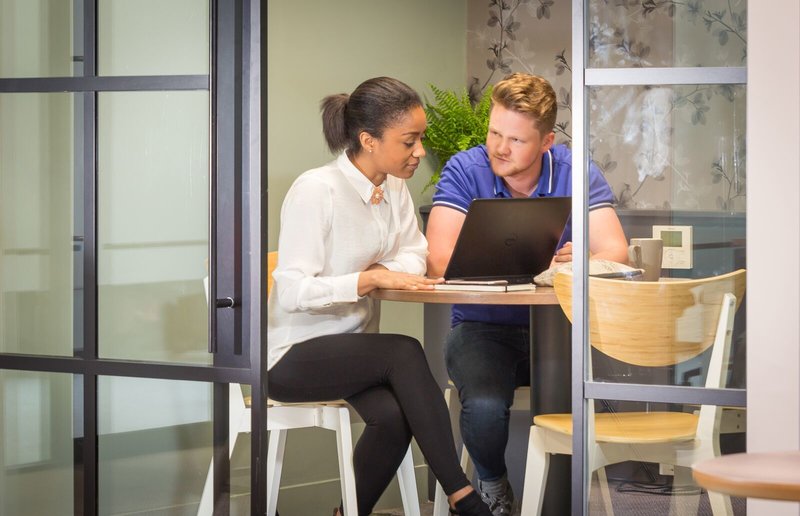The sharing trend is conquering more and more countries, with lots of them adopting the practice of using coworking spaces instead of overcrowded offices. Spaciousness, the atmosphere of productive work and white noise benefit the process and help you work more efficiently. However, the benefits of coworking should not be outweighed by possible risks, including the ones associated with cybersecurity.
What dangers may be lurking in the Internet as accessed from a coworking space?
There may be quite a lot of vulnerabilities that can potentially be exploited by hackers and other people eager to line their pockets using information that does not belong to them. Those who leave file sharing on while being connected to an unprotected network run the risk of data leak. Fake networks are among other options: instead of the real one, you may be allured into a digital swamp that mimics the ocean of a protected network.

This is not to say that all coworking facilities are unsafe in terms of cybersecurity. Serious companies invest in network protection and even have IT teams to make sure every single device is safe and sound. Still, better safe than sorry. Your contribution to cybersecurity is very important, so it is recommended that you adhere to the set of “digital hygiene” rules listed below.
Dos and don’ts of using the Internet in a coworking space
- DON’T turn off firewalls. Install special anti-virus software designed to protect your device. Among the most common and reliable options are Kaspersky, ESET, Avast and some others. Use network activity monitors to make sure everything is working as intended.
- DO update your operating system. Updates always include improvements regarding security, and failing to update your system regularly can result in your having to reinstall everything all over again and crying over spilled milk.
- DO pay attention to what option you select when connecting to the coworking public network. By defining it as a public network in the pop-up window, you automatically adjust the settings and file sharing is turned off.
- DON’T allow your device to connect to WiFi automatically.
- DO use difficult-to-crack passwords. Gone are the days when “password123” used to be a feasible option. The Guardian has recently published an article about the most common passwords – with 3.8 million people still using qwerty and a staggering 23.2 million users having 12345 as their password!
- DO change passwords from time to time.
- DON’T leave your computer or other device you use in a coworking space unattended. Yes, most people who come there won’t ever consider taking something that is not their property, but there may be someone who is not that benevolent. This does not necessarily mean that your device will be stolen – there are many other ways to exploit it. For instance, by means of uploading viruses or simply copying the data they are interested in while you are away.
- DO adhere to the general rules of cybersecurity and be aware of what some of the possible online traps may be.
- DO talk to the team responsible for internet security in the coworking space of your choice. Ask them what measures have been taken to ensure safety, what software is used, whether there is an opportunity to use double authentication, what the network security policy is, etc.
- DO not neglect the impact the Internet of Things (IoT) may have. If there is equipment employing IoT, do not overlook the possibility that hackers may try to use it as a gate to intercept the data transferred via the network. Updates and dynamic testing are among the things used to prevent cybercriminals from gaining access to personal information.
- DO avoid websites that are likely to be infected with malware, such as pornographic and gambling websites. Besides, this is just plain gross!
- DO use extra security measures if you are responsible for the network, such as using an IP filtering system, double authentication, separate virtual networks for smaller groups working in the coworking space, etc.

As you can see, cybersecurity in a coworking space is by no means an easy-to-tackle issue. It calls for a comprehensive approach and awareness of users of what rules of “digital hygiene” there are. However, if you avoid websites that are likely to harbor dangers and are careful with what you click, the chances are using the internet in a coworking space will not bring any problems.
Photo Credit: Coworking London
